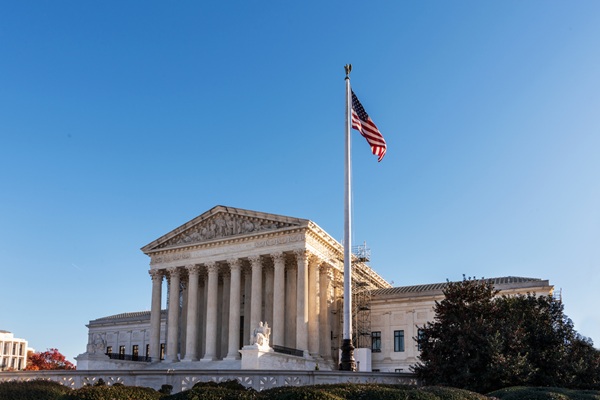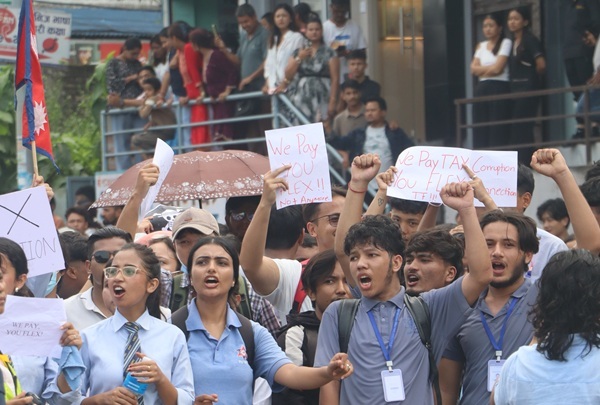.png)

By Ajay Srivastava
Ajay Srivastava, founder of Global Trade Research Initiative, is an ex-Indian Trade Service officer with expertise in WTO and FTA negotiations.
September 10, 2025 at 10:07 AM IST
On September 4, 2025, the Trump administration filed an appeal in the US Supreme Court to reinstate tariffs struck down by lower courts. This appeal explicitly names India’s Russian crude oil purchases as the justification for existence of tariffs.
The Trump administration has directly cited India’s purchases of Russian oil to justify sweeping tariffs in its appeal to the US Supreme Court, raising the stakes for New Delhi as it considers how best to respond.
India cannot be a direct party in this case, which is between the Trump administration and American businesses that challenged the tariffs.
But GTRI says New Delhi has a narrow window to make its voice heard. The most effective path would be filing an amicus curiae brief, a “friend of the court” submission that would put India’s objections formally on record.
This would place India’s objections on record, strengthen the arguments of US businesses challenging the tariffs, and highlight why the duties, as high as 50%, are unlawful and discriminatory.
By remaining silent, India risks allowing Trump’s narrative to stand uncontested at the highest court in America.
US Arguments
In its filing, Washington defended using the International Emergency Economic Powers Act to justify the tariffs and singled out India as the main example. It said a 25% “reciprocal” tariff plus a 25% penalty was imposed because of New Delhi’s continued purchase of Russian oil.
The appeal described the tariffs as “crucial” to America’s push for peace in Ukraine and efforts to counter Russia. It also warned that scrapping the measures would damage US national security, disrupt trade negotiations, and invite retaliation from other countries.
India’s Brief
The first and most fundamental argument is sovereignty in energy security. Every nation has the right to secure reliable and affordable energy. India’s oil imports from Russia are entirely legal, transparent, and conducted within international norms. Penalising such sovereign choices through trade sanctions sets a dangerous precedent for global governance.
Second, the tariffs on India are discriminatory. The Trump administration’s case zeroed in on India’s $52.7 billion in Russian oil imports in 2024, painting them as defiance of Western sanctions. Yet this overlooked far larger imports by other players. China purchased $62.6 billion of Russian oil in the same year, while the European Union imported $39.1 billion worth of Russian goods, including $25.2 billion in oil alongside fertilizers, aluminum, and titanium. Even the United States itself imported $3.3 billion in Russian products, from platinum group metals and titanium to aircraft parts.
The US actions reveal more about politics than strategy. China’s control over critical minerals deters confrontation, while NATO allies remain shielded from criticism despite continuing imports. India, without such leverage, becomes the convenient target. By singling out India while sparing others, Washington undermines both fairness and credibility.
Third, the very foundation of the war-related justification is contested. Economist Jeffrey Sachs and others argue that US policy itself contributed to the Ukraine crisis. After promising Russia in the 1990s that NATO would not expand eastward, the alliance enlarged in 1999 and 2004. In 2008, Washington pressed for Ukraine and Georgia to join, ignoring Moscow’s warnings. Post-2014, US backing for Ukraine’s NATO ambitions only heightened tensions. To now punish India for this geopolitical quagmire is unjustifiable.
Fourth, the use of IEEPA is a misapplication of US emergency powers. India is not a belligerent in the Ukraine conflict, and stretching emergency statutes to penalize legitimate trade transforms commercial relations into political hostages.
Finally, the tariffs violate World Trade Organization rules, breaching the Most-Favored Nation principle by imposing higher duties on India than others and exceeding America’s bound tariff commitments. They also damage US–India strategic trust at a time when Washington itself calls New Delhi its “indispensable partner” in the Indo-Pacific.
The Road Ahead
For New Delhi, the choice is clear. By filing an amicus curiae brief, India can ensure its case is heard at the highest level of the US judiciary and challenge the logic that its Russian oil imports justify crippling tariffs. Silence would allow Trump’s framing to dominate unopposed, risking both economic losses and reputational damage. Speaking up, on the other hand, would reinforce India’s rights under international law, defend its energy security, and remind Washington that targeting a key strategic partner over an unrelated war is both misguided and dangerous.




